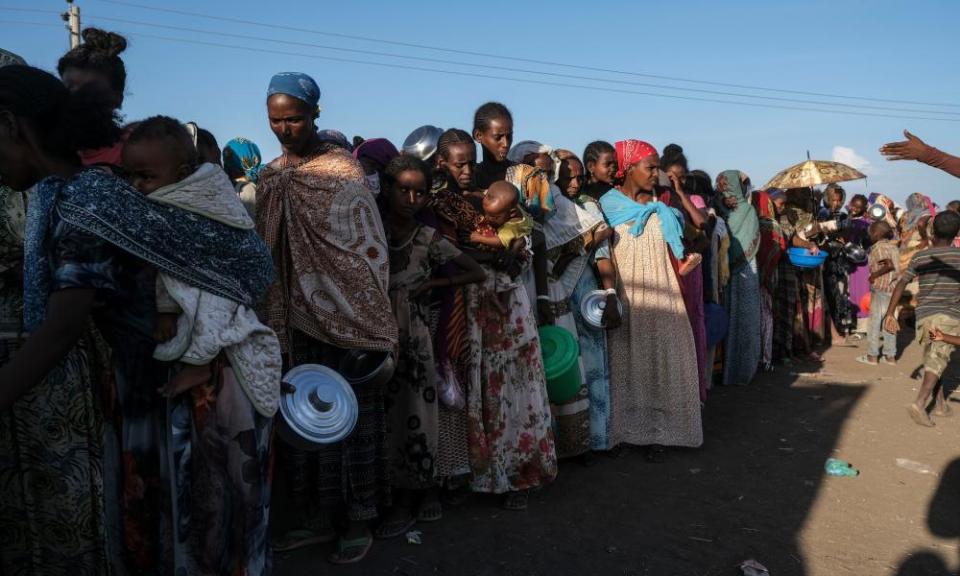Covid limits migration despite more people displaced by war and disasters

IOM report finds 9m more people displaced globally but mobility restricted due to pandemic, with vaccination proving a key factor
The coronavirus pandemic had a radical effect on migration, limiting movement despite increasing levels of internal displacement from conflict and climate disasters, the UN’s International Organization for Migration said in a report on Wednesday.
Though the number of people who migrated internationally increased to 281 million in 2020 – 9 million more than before Covid-19 – the number was 2 million lower than expected without a pandemic, according to the report.
“We are witnessing a paradox not seen before in human history,” said IOM director general, António Vitorino. “While billions of people have been effectively grounded by Covid-19, tens of millions of others have been displaced within their own countries.”
Internal displacement caused by violence, conflict and disasters increased to 40.5 million from 31.5 million. Globally, the IOM said governments implemented a total of 108,000 restrictions on international travel, alongside internal restrictions on movement, disrupting migration during the pandemic.
Prior to the report’s release, Vitorino told IOM member states on Monday that international cooperation was needed to ensure people were not stripped of the option of migrating when they needed to.
He also pointed out that people from countries with low levels of vaccination could be excluded from emigrating. “We must acknowledge the deep impacts the Covid-19 pandemic has had for people on the move: people stranded in transit, families separated across borders, migrants left unemployed but unable to afford the return home,” said Vitorino.
“The resulting complex patchwork of measures, frequently changing in scope and application, has placed a chilling effect on cross-border mobility, particularly for those unvaccinated.”
Related: Refugees forced to claim asylum in ‘jail-like’ camps as Greece tightens system
The report said conditions were particularly harsh for people from developing countries working in the Middle East and south-east Asia, with the pandemic affecting their incomes and housing, while they were also often excluded from access to healthcare and welfare.
However, the feared 20% drop in remittances – which can be a key lifeline to poor families during crises – that was predicted by the World Bank in April 2020 did not materialise and had been much lower, at 2.4%. This might be partly related to people being forced to send money to their families through formal routes, the report suggested, because options such as carrying cash were blocked off, as well as many working in jobs on the frontline of the pandemic that continued despite lockdowns.

 Yahoo Finance
Yahoo Finance 